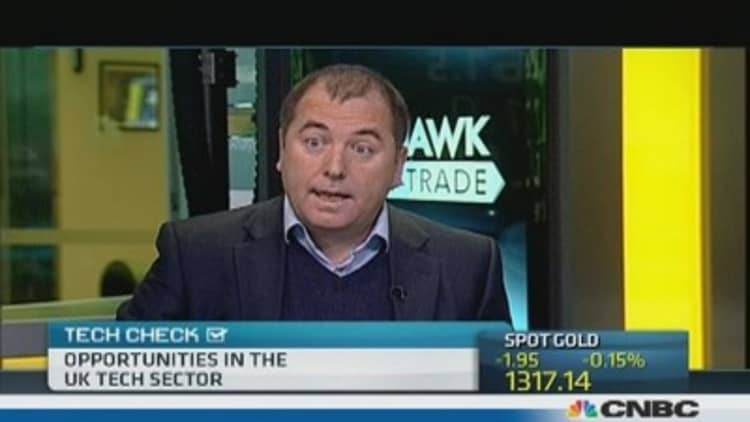Europe's top tech officials are warning that the region's reluctance to celebrate its technological achievements could keep the region permanently in the shadow of the US.
"Often people in Europe are too negative. Sometimes people think innovation is just for Silicon Valley," Neelie Kroes, the European commissioner for the Digital Agenda, said in a speech in September.
"The fact is, here in Europe, we have many great success stories – but we are not telling them. There are so many talented people working to make their ideas a reality. So many innovations and innovators."
The 28-country European Union may have a pool of 80 million euros ($109 million) to give the region's startups a helping hand in 2014 but is it a case of too little, too late for Europe's start-up technology industry?
Is the US better than Europe?
The U.S. has been the leader in churning out global technology giants that were once startups, from Google to Facebook, while European companies have remained less well-known.
(Read more: The world's hot start-ups)
But this doesn't necessarily mean there aren't some successful European startups, according to one venture capitalist firm that was the first investor in video calling platform Skype, which is based in Luxembourg and founded by a team of Estonian, Danish and Swedish entrepreneurs.

Europe can boast its own litany of successes including music streaming service Spotify and Angry Birds maker Rovio.
"We can point at a number of tech nominees that have great results in Europe. We're just not good at shouting about them like they do in America," Michael Jackson, partner at early stage investor Mangrove Capital Partners, told CNBC in a phone interview.
Funding shortfall
But investment continues to dog European start-ups with companies not being able to access capital as freely as their U.S. counterparts. European VC investment totalled $5.7 billion in 2012 with 1,074 investment rounds, while the U.S figure hit $29.7 billion with over three times the number of investment rounds, according to figures from EY.
(Read more: What's fueling the explosion in start-up accelerators?)
As U.S. tech companies take advantage of free-flowing capital, European start-ups struggle as the entrepreneurial attitude differs, according to Enrique Velasco-Castillo, a mobile analyst at IHS Electronics and Media.
"Historically, the configuration in Silicon Valley has allowed the growth of a very entrepreneurial attitude toward taking risk. There is an ecosystem of venture capitalists that are willing to take the same type of risks and understand the mindset of the technology entrepreneurs," Velasco-Castillo told CNBC in a phone interview.
Risk taking
U.S. entrepreneurs have a stronger appetite for risk-taking than their European counterparts, as failure is "priced in" to investments in America, while it is seen as a "crippling issue" across the Atlantic, Velasco-Castillo said.
Pankaj Chaddah, the founder of online city restaurant and nightlife guide Zomato, started in India, said while the company is expanding into Europe, there is a different attitude to risk in the continent.
(Read more: Crowdfunding 2.0: A new era for start-up finance)
"Students are more inclined to go and do and Masters (degrees) than take the risk when they have the years to put in time," Chaddah said.
IPOs the way forward?
The tech space has seen a host of blockbuster IPOs with investors and listing your tech company could be a way to plug the funding gap while giving startups the ultimate validation of their idea, according to George O'Connor, senior analyst at Panmure Gordon.
"The gap in funding is in the higher up stages of a company's development, past the seed funding stage. One of the things that listings have helped companies do is leapfrog that stage," he explained.
While U.S. companies have shot ahead with IPOs, European startups often prioritised selling the company. But that mentality is changing and could help European startups catch up, O'Connor said.
"European companies used to think about selling, but now are thinking about IPOs. It is a new type of thinking. At the same time, sectors are awash with cash and there is still an strong M&A potential and this becomes a part of their thinking which a year a two ago it wasn't at all."
—By CNBC's Arjun Kharpal: Follow him on Twitter @ArjunKharpal


